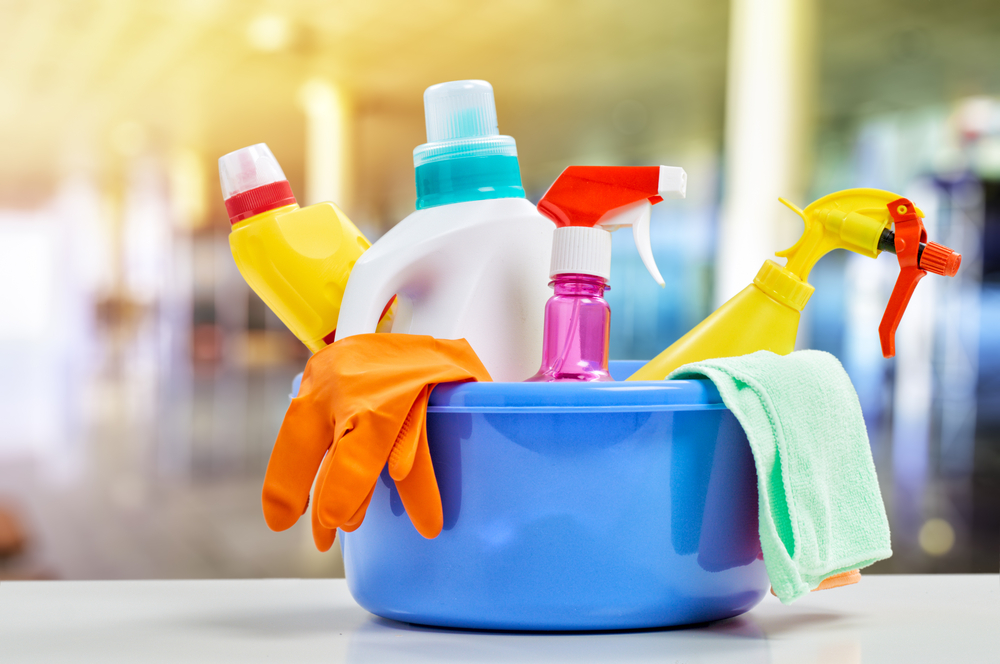The Impact of Household Cleaners on Your Septic System

When it comes to maintaining a healthy septic system, many homeowners focus on regular pumping and inspections. However, one often overlooked factor that can impact the health of your septic system is the use of household cleaners. While cleaning products are essential for keeping your home clean and germ-free, certain chemicals in these products can wreak havoc on your septic system. In this blog post, we’ll explore the potential impact of household cleaners on your septic system and provide tips for minimizing any negative effects.
Do Cleaning Products Cause Problems with Toilets?
Toilet cleaners are a common household product that can have a significant impact on your septic system. Many toilet cleaners contain harsh chemicals such as bleach, ammonia, and phosphates, which can kill the beneficial bacteria in your septic tank. These bacteria are essential for breaking down solid waste and maintaining the proper balance of microorganisms in the tank. When these bacteria are killed off by harsh cleaning products, it can lead to a buildup of sludge and scum in the tank, causing clogs and backups in your plumbing system.
In addition to killing off beneficial bacteria, toilet cleaners can also introduce harmful chemicals and toxins into your septic system. These chemicals can leach into the surrounding soil and groundwater, contaminating the environment and posing a risk to human health. Phosphates, commonly found in many household cleaners, can promote the growth of algae in bodies of water, leading to water pollution and environmental degradation. By using gentler, eco-friendly toilet cleaners, you can help protect your septic system and the environment from harm.
Do Cleaning Products Cause Problems with Septic Tanks?
In addition to toilet cleaners, other household cleaning products can also impact the health of your septic tank. Drain cleaners, for example, contain harsh chemicals that can corrode pipes and damage the walls of your septic tank. These chemicals can also kill off beneficial bacteria and disrupt the natural balance of microorganisms in the tank, leading to a breakdown in the treatment process. In addition, antibacterial soaps and disinfectants can kill off beneficial bacteria in your septic tank, reducing its ability to break down waste effectively.
It’s also important to consider the impact of laundry detergents and dish soaps on your septic system. Many of these products contain phosphates, surfactants, and other chemicals that can harm the delicate balance of your septic tank. Phosphates, in particular, can promote the growth of algae in bodies of water, leading to water pollution and environmental damage. By choosing septic-safe cleaning products that are free of harsh chemicals and toxins, you can help protect your septic system and ensure its long-term health and functionality.
Tips for Minimizing the Impact of Household Cleaners on Your Septic System
Fortunately, there are several steps you can take to minimize the impact of household cleaners on your septic system. Here are some helpful tips to keep your septic system healthy and functioning properly:
1. Use septic-safe cleaning products: Look for cleaning products that are labeled as septic-safe or environmentally friendly. These products are free of harsh chemicals and toxins that can harm your septic system and the environment.
2. Avoid using bleach and ammonia: These harsh chemicals can kill off beneficial bacteria in your septic tank and disrupt the treatment process. Opt for natural cleaning alternatives, such as vinegar and baking soda, to clean and disinfect your home.
3. Limit the use of antibacterial products: Antibacterial soaps and disinfectants can kill off beneficial bacteria in your septic tank, reducing its ability to break down waste effectively. Use these products sparingly and choose gentle, eco-friendly alternatives whenever possible.
4. Practice water conservation: Excessive water use can overwhelm your septic system and lead to backups and failures. Be mindful of your water use and fix any leaks or drips to reduce water consumption and prevent strain on your septic system.
5. Schedule regular maintenance: In addition to proper cleaning practices, it’s important to schedule regular maintenance and inspections for your septic system. A professional septic service provider can assess the health of your tank, identify any issues, and recommend solutions to keep your system running smoothly.
Summary
Household cleaners can have a significant impact on the health and functionality of your septic system. By choosing septic-safe cleaning products, avoiding harsh chemicals, limiting the use of antibacterial products, practicing water conservation, and scheduling regular maintenance, you can help ensure the long-term success of your septic system. By taking proactive steps to protect your septic system from harmful chemicals and toxins, you can enjoy a clean and healthy home while preserving the environment for future generations.
Got Questions About Your Septic System? Let Us Help!
The Macken family has been serving western New York since 1968. Our company specializes in the installation, repair, and maintenance of septic systems. We can also help you deal with your restaurant grease trap. We have acquired a decade’s worth of experience and know all the ins and outs of keeping your septic system worry-free. The key to a well-functioning septic system is regular maintenance. While it is easy to be lulled into a false sense of security, make no mistake: eventually, a neglected septic system will require attention. So be proactive and give us a call today before you have a stinky situation to deal with.
Categorised in: Septic Systems
This post was written by admin
